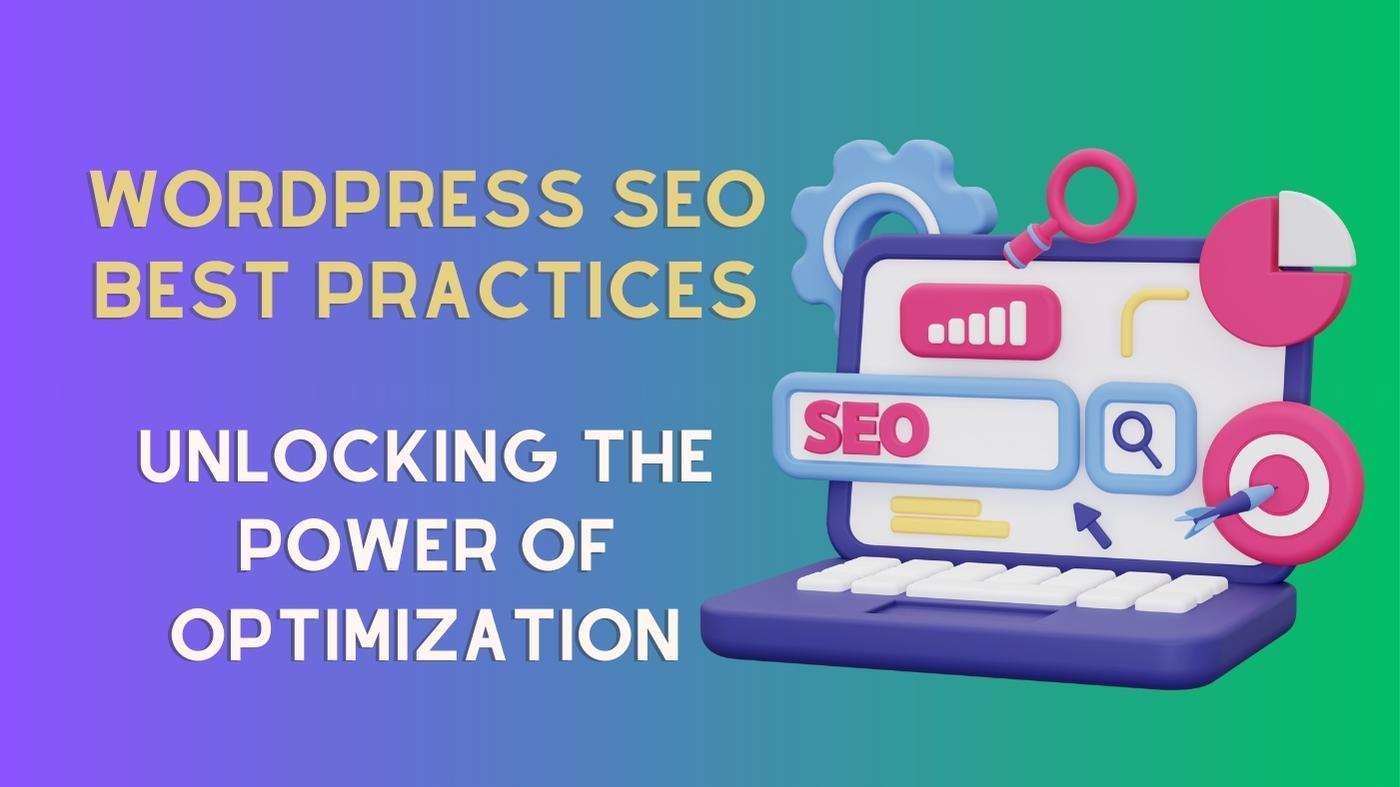
Unlocking the Power of Optimization
In the ever-evolving digital landscape, ensuring that your WordPress website stands out and reaches its intended audience is crucial. Search Engine Optimization (SEO) plays a pivotal role in driving organic traffic and increasing the visibility of your content on search engine result pages. By implementing WordPress SEO best practices, you can unlock the full potential of your website and achieve higher rankings, better user experiences, and increased engagement. In this comprehensive guide, we’ll delve into the key strategies and techniques that can transform your WordPress site into an SEO powerhouse.
1. Quality Content is King
The cornerstone of effective SEO is high-quality content. Create informative, valuable, and engaging content that caters to your target audience’s needs and queries. Utilize relevant keywords naturally within your content, ensuring it remains reader-friendly. Aim for longer, comprehensive articles that provide in-depth insights into your chosen topics.
2. Keyword Research and Optimization
Conduct thorough keyword research using tools like Google Keyword Planner, SEMrush, or Ahrefs. Identify relevant keywords with substantial search volumes and lower competition. Integrate these keywords strategically into your content’s titles, headings, meta descriptions, and body text. However, avoid keyword stuffing, as search engines penalize such practices.
3. Optimize On-Page Elements
Utilize SEO plugins like Yoast SEO or Rank Math to optimize on-page elements. Craft compelling meta titles and descriptions that accurately represent your content and entice users to click. Optimize image alt attributes, heading tags (H1, H2, etc.), and internal linking to enhance your content’s visibility and user experience.
4. Mobile Responsiveness and Site Speed
With mobile devices driving a significant portion of web traffic, ensuring your WordPress site is mobile-responsive is essential. Additionally, optimize your site’s speed by using caching plugins like WP Rocket, minimizing image sizes, and optimizing code. Page load speed directly impacts user experience and search engine rankings.
5. XML Sitemaps and Site Structure
Generate XML sitemaps using plugins like Google XML Sitemaps to help search engines crawl and index your site efficiently. Organize your site’s content logically, using categories, tags, and a clear navigation menu. A well-structured site enhances user experience and aids search engines in understanding your content hierarchy.
6. Secure Your Website with HTTPS
Switch to HTTPS by installing an SSL certificate. Secure websites are favored by search engines and provide a safer browsing experience for users. Google also considers HTTPS as a ranking factor, making it an essential step in WordPress SEO.
7. Backlink Building
Earn high-quality backlinks from authoritative websites in your niche. Backlinks signal to search engines that your content is valuable and relevant. Guest posting, influencer outreach, and creating shareable, link-worthy content can help you build a strong backlink profile.
8. Schema Markup Implementation
Utilize schema markup to provide additional context to search engines about your content. Schema can enhance the appearance of your search results by adding rich snippets, making your content stand out and potentially increasing click-through rates.
9. Regularly Update and Refresh Content
Search engines prefer fresh, up-to-date content. Regularly update and refresh your existing articles to ensure their accuracy and relevance. This also provides an opportunity to incorporate new keywords and information.
10. Monitor Analytics and Make Data-Driven Decisions
Utilize tools like Google Analytics and Google Search Console to monitor your website’s performance. Analyze user behavior, traffic sources, and keyword rankings. Use this data to refine your SEO strategies, identify opportunities for improvement, and adapt to changing trends.
Conclusion
WordPress SEO isn’t a one-time task; it’s an ongoing process that requires dedication and adaptation to evolving algorithms. By following these best practices, you’ll be well-equipped to optimize your WordPress site for search engines and deliver an exceptional user experience. Remember, effective SEO is a combination of technical excellence, compelling content, and a user-centric approach. Embrace these principles, stay informed about industry trends, and watch your WordPress site climb the search engine rankings.





